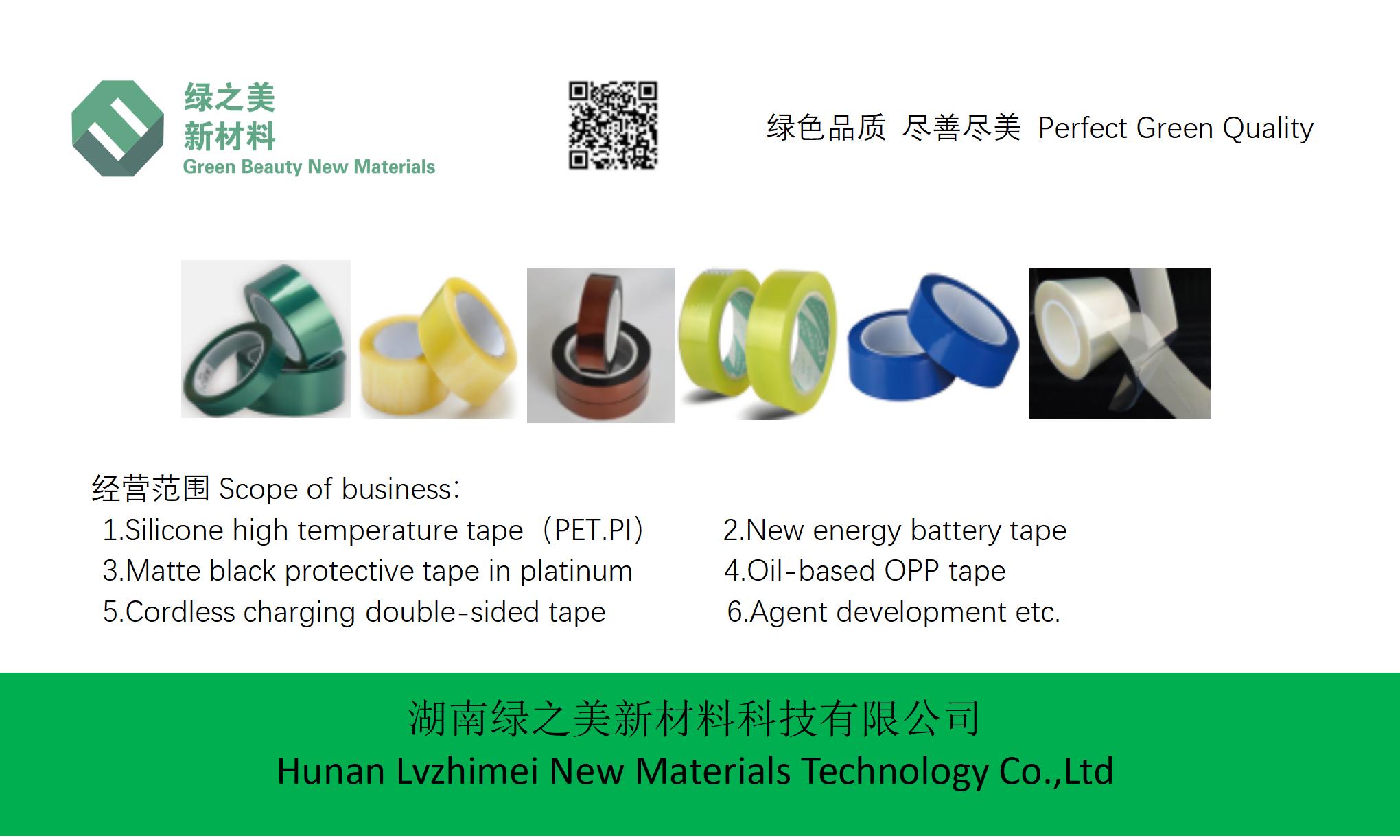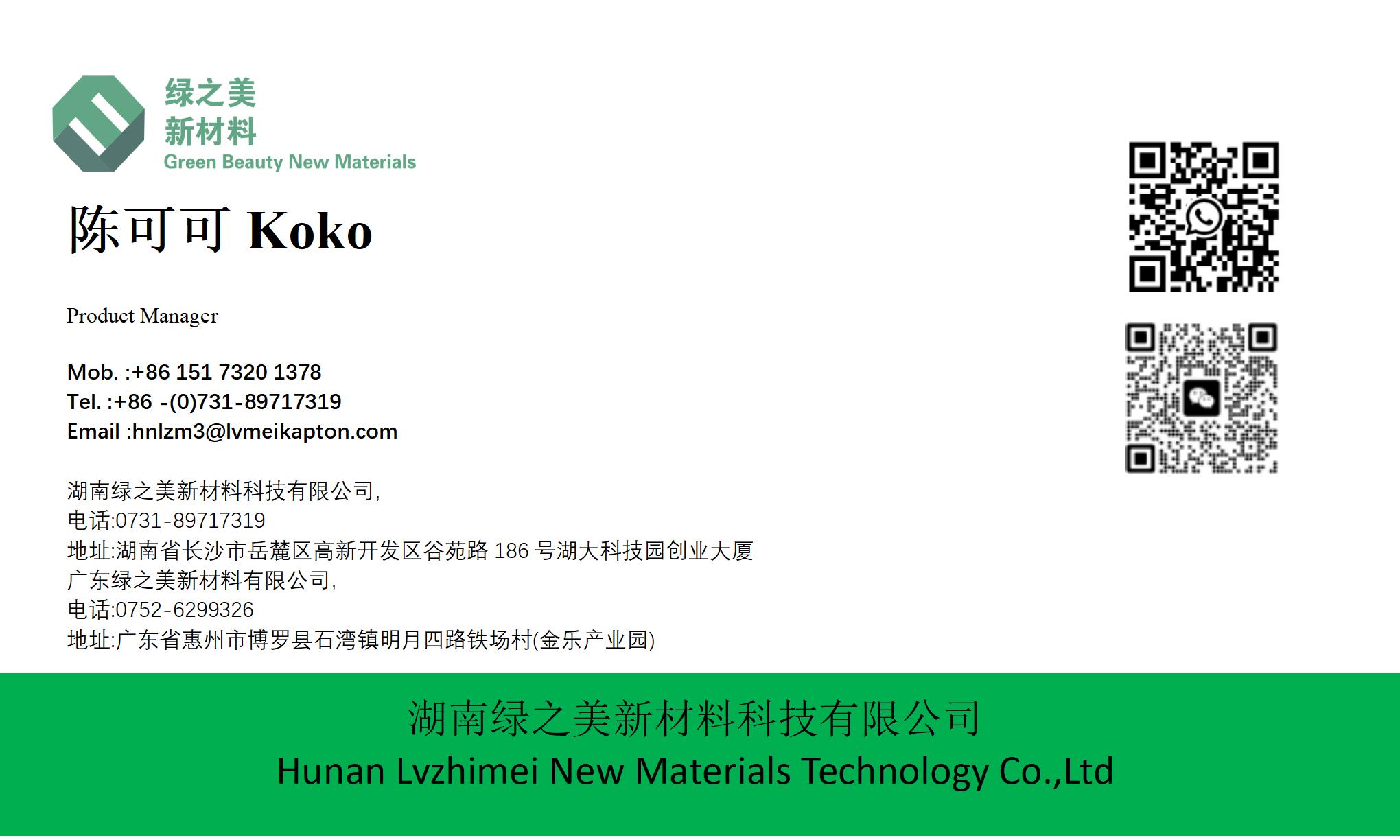



Why Choose Lvmeikapton Over Standard Electrical Tapes for Motor Insulation?|https://www.lvmeikapton.com/
1. Introduction
2. The Critical Role of Insulation in Motor Performance
2.1 Key Challenges in Motor Insulation
Thermal Stress: Continuous heat from winding resistance (150–200°C in industrial motors, up to 240°C in EV traction motors).
Electrical Stress: High voltage gradients causing partial discharges in windings.
Mechanical Stress: Vibration (20–2,000 Hz) and thermal expansion/contraction leading to tape fatigue.
Chemical Exposure: Lubricants, coolants, and moisture in industrial settings; electrolytes in EV batteries.
2.2 Limitations of Standard Electrical Tapes
| Tape Type | Max Continuous Temp. | Dielectric Strength | Tensile Strength | Chemical Resistance | Typical Failure Modes |
|---|---|---|---|---|---|
| PET Tape | 150°C | 6–8 kV/mm | 120 MPa | Moderate | Thermal delamination, residue |
| PVC Tape | 80°C | 4–5 kV/mm | 50 MPa | Poor | Brittleness, electrical leakage |
| Silicone Tape | 200°C | 8–10 kV/mm | 60 MPa | Good | Low mechanical strength |
3. Core Advantages of Lvmeikapton for Motor Insulation
3.1 Unmatched Thermal Stability: Defying Heat Degradation
3.1.1 Temperature Resistance
Continuous Operation: 260°C for thousands of hours, 73% higher than PET tape’s 150°C limit (Fig. 1).
Short-Term Peaks: Withstands 350°C for up to 30 minutes, critical for transient overloads in motor startups.
Thermal Cycling Resilience: Maintains integrity through 1,000+ cycles between -73°C and +260°C, a requirement for aerospace motors enduring extreme altitude temperature swings.
3.1.2 Impact on Motor Lifespan
Winding Protection: Prevents enameled wire degradation at 200°C, where PET tape softens and allows wire movement, causing insulation breakdown.
Thermal Runaway Mitigation: In EV motors, Lvmeikapton’s 260°C resistance delays heat spread, buying time for thermal management systems to activate.
3.2 Superior Electrical Insulation: Safeguarding High-Voltage Windings
3.2.1 Dielectric Performance
Dielectric Strength: 10–12 kV/mm, 50% higher than silicone tapes (8–10 kV/mm), reducing the risk of partial discharges in high-voltage motors (1,000V+).
Volume Resistivity: 10¹⁴–10¹⁵ Ω·cm, resisting leakage currents and maintaining insulation resistance over time (Fig. 2).
Low Dielectric Constant: 3.2–3.5 (1 MHz), minimizing energy loss in high-frequency motors used in robotics and aerospace.
3.2.2 Protection Against Electrical Arcing
Slot Insulation: In motor stators, Lvmeikapton’s high dielectric strength prevents arcing between laminations, a common failure in standard tapes under 500V.
Turn-to-Turn Insulation: 0.05mm thickness provides precise separation in tightly wound coils, reducing the risk of inter-turn shorts by 40%.
3.3 Mechanical Robustness: Withstanding Vibration and Stress
3.3.1 Mechanical Properties
Tensile Strength: 185 MPa, 54% stronger than silicone tape (120 MPa), ensuring secure winding fixation under 50,000g shock (e.g., in off-road vehicle motors).
Elongation at Break: 120–150%, adapting to winding expansion during thermal cycles without cracking, unlike PET tape (80% elongation limit).
Edge Retention: Rounded 0.5mm edges reduce fraying by 60% in high-vibration environments, minimizing particle contamination in motor cores.
3.3.2 Vibration Resistance Testing
Industrial Motor Case Study: A German wind turbine manufacturer saw a 70% reduction in insulation failures after replacing silicone tape with Lvmeikapton in gearbox motors exposed to 100 Hz vibration.
3.4 Chemical Resistance: Thriving in Contaminated Environments
3.4.1 Resistance to Motor Fluids
Lubricants: Maintains 95% peel strength after 24 hours in mineral oil, while PET tape loses 30% adhesion (Table 2).
Coolants: Resists degradation in ethylene glycol-based coolants (common in EV motors), unlike PVC tape, which swells by 15% within 48 hours.
Electrolytes: In hybrid motor-generators, Lvmeikapton withstands lithium-ion battery electrolytes, a critical advantage over silicone tapes that degrade in LiPF6 solutions.
| Chemical Exposure | Lvmeikapton (Weight Change) | Silicone Tape (Weight Change) | Adhesion Retention |
|---|---|---|---|
| Mineral Oil (72h) | <0.3% | 5% | 95% vs. 60% |
| Ethylene Glycol (48h) | 0.5% | 8% | 90% vs. 55% |
| LiPF6 Electrolyte | 0.1% | 12% | 85% vs. 30% |
3.4.2 Moisture and Corrosion Protection
IP67-Rated Motors: Lvmeikapton’s low water absorption (<0.1% after 24h) prevents moisture-induced insulation resistance drop, a common issue in outdoor motors.
3.5 Low Outgassing and Environmental Compliance
3.5.1 Cleanroom and Aerospace Suitability
Low Total Mass Loss (TML): <1% per ASTM E595, making it ideal for aerospace motors where outgassed volatiles could damage sensors or optics.
RoHS/REACH Compliance: Free of lead, cadmium, and phthalates, meeting strict EU and California environmental standards for EV and industrial motors.
4. Application Scenarios: Lvmeikapton Across Motor Types
4.1 Industrial Motors: Reliability in Heavy-Duty Settings
4.1.1 Winding Insulation in High-Temp Motors
Application: Insulating stator and rotor windings in induction motors operating at 180–200°C.
Lvmeikapton Advantage: Prevents enamel coating wear from thermal expansion, extending motor lifespan from 5 to 10+ years in cement plant gearmotors.
4.1.2 Case Study: Paper Mill Motors
Challenge: High humidity (90% RH) and exposure to lubricating oils caused annual insulation failures in 30% of motors.
Solution: Lvmeikapton tape with silicone adhesive, resistant to both moisture and mineral oil.
Result: Zero failures in 2 years, reducing downtime by 400 hours/year and maintenance costs by $150,000.
4.2 Electric Vehicle (EV) Motors: Meeting Stringent Traction Demands
4.2.1 Traction Motor Insulation
Thermal Demand: EV motors operate at 200–240°C during fast charging, requiring tapes that won’t degrade and cause short circuits.
Electrical Stress: 400V+ systems demand high dielectric strength to prevent arcing between winding turns.
Lvmeikapton Solution: 0.1mm thickness provides dual insulation and mechanical support in hairpin windings, a common design in Tesla and Nissan EV motors.
4.2.2 Battery-Integrated Motors
Chemical Protection: Resists electrolyte leakage from adjacent battery packs, a failure mode that caused 15% of early EV motor recalls.
4.3 Aerospace and Defense Motors: Extreme Environment Resilience
4.3.1 Avionics Motor Insulation
Temperature Swing: From -55°C (cruising altitude) to +200°C (engine proximity), Lvmeikapton maintains adhesion and insulation.
Vibration Resistance: Withstands 20–2,000 Hz vibration in aircraft actuators, surpassing MIL-I-23053/5 standards.
4.3.2 Military-Grade Reliability
Shock Resistance: 50,000g shock tolerance protects missile guidance system motors during launch, a requirement unmatched by standard tapes.
5. Technical Comparison: Lvmeikapton vs. Conventional Tapes
| Property | Lvmeikapton (PI-Based) | Standard Silicone Tape | PET Tape | PVC Tape |
|---|---|---|---|---|
| Continuous Temp. (°C) | 260 | 200 | 150 | 80 |
| Dielectric Strength (kV/mm) | 10–12 | 8–10 | 6–8 | 4–5 |
| Tensile Strength (MPa) | 185 | 60 | 120 | 50 |
| Thermal Expansion (ppm/°C) | 15 | 50 | 70 | 80 |
| Water Absorption (%) | <0.1 | 1.2 | 0.5 | 1.0 |
| Cost (USD/m²) | 3.00–4.50 | 1.50–2.50 | 0.80–1.20 | 0.50–0.90 |
While Lvmeikapton costs 2–3x more than standard tapes, its long-term savings are significant:
Reduced Downtime: 50–70% fewer insulation-related failures in high-temperature motors.
Extended Lifespan: 2x longer service life compared to PET/silicone tapes in harsh environments.
6. How Lvmeikapton Enhances Motor Manufacturing Processes
6.1 Precision Winding with Custom Solutions
Die-Cut Shapes: Customizable thickness (0.035–0.15mm) and profiles for complex stator slot insulation, reducing manual trimming by 30%.
Adhesive Options: Silicone adhesive for high-temperature stability or acrylic for cost-sensitive applications, ensuring optimal bond to enameled wire.
6.2 Quality Control and Compliance
UL Certification: UL 94 V-0 (flame retardant) and IPC-4202 Class 2 compliant, meeting global motor insulation standards.
Lot Traceability: Each roll includes a unique ID for material tracking, critical for aerospace and automotive ISO TS 16949 compliance.
7. Case Study: EV Motor Manufacturer Achieves 99.9% Insulation Yield
7.1 Challenge
Thermal Delamination: Standard silicone tape failed at 220°C, causing winding shorts in 0.8% of motors.
Electrolyte Corrosion: Adhesive degradation in battery-adjacent motors, leading to 500 warranty claims/month.
7.2 Lvmeikapton Implementation
Material Switch: Replaced silicone tape with 0.1mm Lvmeikapton tape with enhanced chemical-resistant adhesive.
Process Integration: Automated tape application in stator winding machines, leveraging its 15% elongation for tight coil wrapping.
7.3 Results
Yield Improvement: Insulation-related failures dropped from 0.8% to 0.05%, exceeding industry benchmark (0.1%).
Warranty Savings: $2.5M annual reduction in warranty costs, with no electrolyte-related failures in 18 months of testing.
8. Future Trends in Motor Insulation Technology
8.1 Nano-Enhanced Polyimide Tapes
Graphene Oxide Coating: In development, this boosts thermal conductivity by 25%, reducing hotspots in high-power density motors (e.g., 800V EV platforms).
Carbon Nanotube Reinforcement: Increases tensile strength to 250 MPa, enabling thinner tapes (0.02mm) for next-gen axial flux motors.
8.2 Self-Healing and Smart Insulation
Microcapsule Adhesives: Release repair agents when stressed, restoring 80% of adhesion after thermal cycling damage—ideal for unmanned aerial vehicle (UAV) motors.
Sensor-Integrated Tapes: Embedded thermistors monitor winding temperature in real-time, enabling predictive maintenance in wind turbine generators.
8.3 Sustainable Formulations
Recycled PI Films: Made from 40% post-industrial waste, reducing carbon footprint without compromising performance—targeting EU Green Deal compliance.
Water-Based Adhesives: Low-VOC formulations meet California CARB regulations, suitable for electric motor manufacturing in pollution-sensitive regions.
9. Choosing Lvmeikapton: A Practical Guide
9.1 Application-Specific Selection
- Temperature Range:
<150°C: Consider PET tape for basic insulation (cost-sensitive).
150–260°C: Lvmeikapton is mandatory for reliability.
- 260°C: Contact for custom high-temperature variants.
- Voltage Class:
Low Voltage (<500V): Silicone tape may suffice.
Medium/High Voltage (500V–1,500V): Lvmeikapton’s 10 kV/mm dielectric strength is critical.
- Environment:
Wet/humid: Prioritize Lvmeikapton’s <0.1% water absorption.
Chemical exposure: Choose silicone adhesive for oil/electrolyte resistance.
9.2 Supplier Evaluation
Technical Support: Look for manufacturers offering dielectric breakdown testing and custom prototyping (e.g., Lvmeikapton’s 2-day sample turnaround).
Global Compliance: Ensure IATF 16949 certification for automotive applications and AS9100 for aerospace.
10. Conclusion






